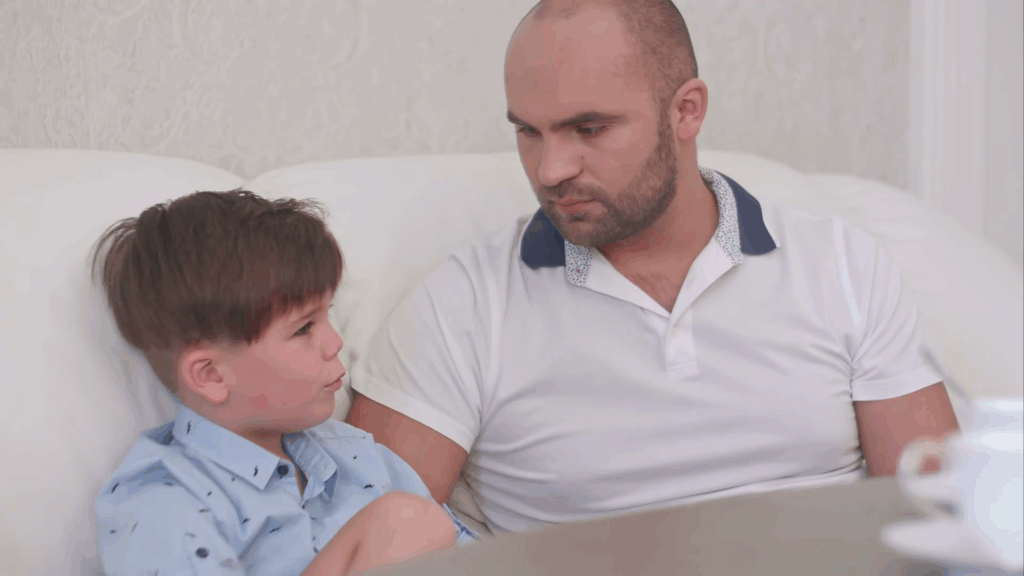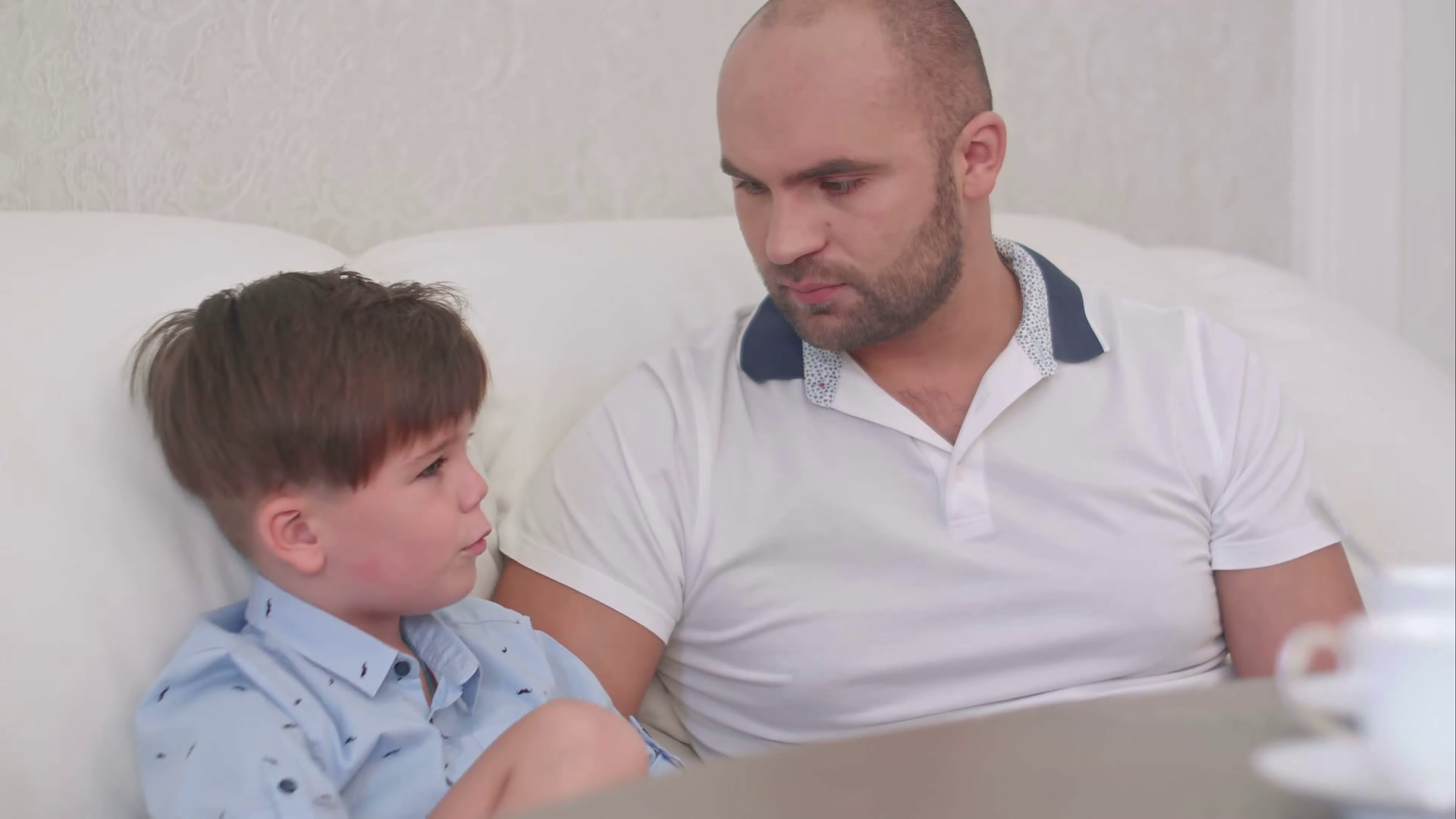
Dad and Son Fighting: Understanding the Causes and Finding Solutions
The phrase “dad and son fighting” conjures images of heated arguments, strained relationships, and emotional turmoil. While disagreements are a normal part of any relationship, persistent conflict between fathers and sons can lead to long-term damage. Understanding the underlying causes of these conflicts and implementing effective strategies for resolution is crucial for fostering a healthy and supportive father-son bond. This article delves into the common reasons behind dad and son fighting, offering practical advice and expert insights to navigate these challenging situations.
Common Causes of Dad and Son Fighting
Several factors can contribute to frequent disagreements and outright fights between fathers and sons. Recognizing these potential triggers is the first step towards addressing the problem effectively. Here are some of the most common causes:
- Generational Differences: Values, beliefs, and perspectives often differ significantly between generations. What a father considers acceptable or appropriate behavior might clash with a son’s worldview, leading to friction.
- Communication Styles: Fathers and sons may have different communication styles. A father might be direct and assertive, while a son might prefer a more indirect or passive approach. These differing styles can lead to misunderstandings and escalating arguments.
- Power Struggles: As sons grow older and seek independence, they may challenge their father’s authority, leading to power struggles. This is particularly common during adolescence and early adulthood.
- Unmet Expectations: Fathers may have certain expectations for their sons regarding academics, career choices, or personal relationships. If these expectations are not met, it can lead to disappointment and conflict. Similarly, sons may feel pressure to live up to their father’s standards, resulting in resentment.
- Personality Clashes: Sometimes, fathers and sons simply have incompatible personalities. Differences in temperament, interests, and habits can create friction and make it difficult to find common ground.
- Lack of Quality Time: In today’s busy world, it’s easy for fathers and sons to drift apart due to work, school, and other commitments. A lack of quality time together can lead to a breakdown in communication and an increase in conflict.
- Unresolved Past Issues: Past hurts, resentments, or unresolved conflicts can resurface and fuel new arguments. Addressing these underlying issues is essential for breaking the cycle of fighting.
- External Stressors: Stress from work, finances, or other life events can spill over into the father-son relationship, leading to increased irritability and conflict.
The Impact of Constant Fighting
Frequent “dad and son fighting” can have a significant negative impact on both individuals and their relationship. Some of the potential consequences include:
- Strained Relationship: Constant conflict can erode the bond between father and son, leading to feelings of resentment, anger, and distance.
- Emotional Distress: Both fathers and sons may experience anxiety, depression, and low self-esteem as a result of ongoing conflict.
- Communication Breakdown: Fighting can make it difficult to communicate effectively, leading to further misunderstandings and escalating arguments.
- Family Discord: Father-son conflict can create tension and disharmony within the entire family.
- Behavioral Problems: In some cases, frequent fighting can contribute to behavioral problems in sons, such as aggression, defiance, or withdrawal.
- Long-Term Damage: Unresolved conflict can have lasting effects on the father-son relationship, potentially leading to estrangement or lifelong resentment.
Strategies for Resolving Conflict
While “dad and son fighting” can be challenging, it’s not insurmountable. With effort, understanding, and a willingness to compromise, fathers and sons can learn to navigate their differences and build a stronger, more supportive relationship. Here are some effective strategies for resolving conflict:
Improve Communication
Effective communication is the cornerstone of any healthy relationship. Here are some tips for improving communication between fathers and sons:
- Active Listening: Pay attention to what the other person is saying, both verbally and nonverbally. Try to understand their perspective, even if you don’t agree with it.
- Express Yourself Clearly: Use “I” statements to express your feelings and needs without blaming or accusing the other person. For example, instead of saying “You always make me angry,” try saying “I feel frustrated when…”
- Choose the Right Time and Place: Avoid having difficult conversations when you’re tired, stressed, or distracted. Find a quiet and private place where you can talk without interruptions.
- Avoid Interrupting: Let the other person finish speaking before you respond. Interrupting can be disrespectful and can escalate the argument.
- Focus on the Issue, Not the Person: Avoid personal attacks or name-calling. Focus on the specific issue at hand and try to find a solution that works for both of you.
Set Boundaries
Establishing clear boundaries is essential for maintaining a healthy relationship. Boundaries define what is acceptable and unacceptable behavior, and they help to prevent conflict. Here are some tips for setting boundaries:
- Identify Your Boundaries: Think about what behaviors or situations make you feel uncomfortable or disrespected.
- Communicate Your Boundaries Clearly: Let the other person know what your boundaries are and why they are important to you.
- Be Consistent: Enforce your boundaries consistently. If you allow the other person to cross your boundaries once, they are more likely to do it again.
- Respect the Other Person’s Boundaries: Just as you have boundaries, the other person does too. Respect their boundaries, even if you don’t agree with them.
Find Common Ground
Finding common interests and activities can help to strengthen the bond between father and son. Spending quality time together doing things you both enjoy can improve communication and reduce conflict. Here are some ideas:
- Share Hobbies: Find a hobby that you both enjoy, such as sports, music, or gaming.
- Plan Activities Together: Go on a hike, attend a sporting event, or volunteer for a cause you both care about.
- Have Regular Conversations: Set aside time each week to talk about your lives, your interests, and your concerns.
- Show Appreciation: Let the other person know that you appreciate their presence in your life.
Seek Professional Help
If “dad and son fighting” is persistent and damaging, seeking professional help may be necessary. A therapist or counselor can provide guidance and support to help you resolve conflict and improve your relationship. Family therapy can be particularly helpful in addressing underlying issues and improving communication patterns.
[See also: How to Improve Communication in Families] [See also: Understanding Generational Differences in Parenting] [See also: The Importance of Father-Son Relationships]
Understand Generational Differences
As mentioned earlier, generational differences are a major source of conflict. Fathers and sons grew up in different eras, with different values, beliefs, and experiences. Understanding these differences can help to bridge the gap and reduce misunderstandings.
- Research Different Generations: Learn about the values, beliefs, and experiences of different generations.
- Be Open-Minded: Try to understand the other person’s perspective, even if you don’t agree with it.
- Avoid Stereotypes: Don’t make assumptions about the other person based on their age or generation.
- Focus on Common Ground: Look for areas where you agree and build on those commonalities.
Practice Empathy
Empathy is the ability to understand and share the feelings of another person. Practicing empathy can help to improve communication and reduce conflict. Try to put yourself in the other person’s shoes and see things from their perspective. Ask them questions about how they are feeling and listen to their responses with an open mind.
Take a Break
When “dad and son fighting” escalates, it’s often helpful to take a break. Step away from the situation and give yourselves time to cool down. This will allow you to approach the situation with a clearer head and a more rational perspective.
Forgive and Forget
Holding onto grudges and resentments will only perpetuate the cycle of conflict. Forgiveness is essential for healing and moving forward. Forgive the other person for their mistakes and let go of the past. This doesn’t mean you have to forget what happened, but it does mean you choose not to let it control your present or future. Remember that both dad and son are likely contributing to the conflict, and both need to be willing to forgive.
The Importance of a Strong Father-Son Relationship
A strong father-son relationship is essential for the well-being of both individuals. Fathers play a crucial role in their sons’ development, providing guidance, support, and love. Sons benefit from having a positive male role model in their lives. While “dad and son fighting” can be challenging, it’s important to remember that conflict is a normal part of any relationship. By understanding the causes of conflict and implementing effective strategies for resolution, fathers and sons can build a stronger, more supportive relationship that will last a lifetime. Open communication, empathy, and a willingness to compromise are key ingredients for success. Remember that the goal is not to eliminate conflict entirely, but to learn how to manage it in a healthy and constructive way. Even when “dad and son fighting” occurs, the underlying love and respect can endure and ultimately strengthen the bond between them.

